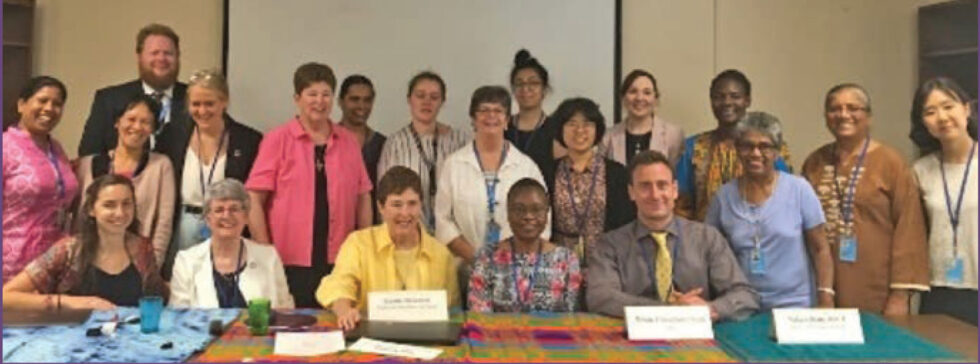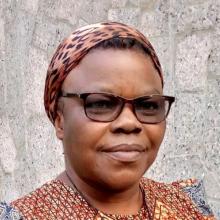
SNDatUN follows the work of the committees below, formed of representatives of NGOs from around the world. The descriptions below are taken from the committees’ websites and/or mission statements.
Committee on Financing for Development
The NGO Committee on Financing for Development at the United Nations advocates for a worldwide economy that is environmentally and socially sustainable, ethical, and people-centered. Guided by the 2002 Monterrey Consensus, we urge policymakers to support development strategies that end global poverty and advance human rights. We seek international financial systems that are fair and truly representative of all people. We are motivated by the moral imperatives underlying the United Nations Charter and the missions of the organizations we represent.
Committee on Migration
The mission of the NGO Committee on Migration is to encourage the promotion and protection of migrants and their human rights, in accordance with the United Nations Charter.
Mining Working Group
The Mining Working Group at the United Nations is a coalition of NGOs with constituencies in a total of 27 mining countries that, in partnership with our members and affected local communities, advocates at and through the UN for human and environmental rights related to extractive industries. The MWG addresses unjust and unsustainable extractive practices and policies through the lens of the rights of local communities and indigenous peoples and Earth’s carrying capacity.
Committee on Social Development
The NGO Committee on Social Development is a coalition of organizations dedicated to working towards people-centered social change and development through the United Nations. The Committee is dedicated to raising awareness and holding discussions on social development issues taken up by the UN system and in particular by the UN Commission for Social Development. The Committee also advocates on social development issues in other forums such as the Commission on the Status of Women, Economic and Social Council (ECOSOC), and the General Assembly. Committee members keep one another informed and deliver group statements to the UN voicing ideas and positions on key social development issues. In addition, the Committee is focused on reviewing the outcome of the 1995 World Summit on Social Development.
Committee of Religious NGOs The Committee of Religious NGOs at the United Nations is composed of the representatives of national and international organizations which define their work as religious, spiritual or ethical in nature. The Committee of Religious NGOs meets regularly to share information and insights about the complex issues and events at the UN. The Committee serves as a forum to inform and educate our constituencies about the global challenges of our time, and the constructive role that the UN can play in addressing those issues. It also serves as a forum for exchanging and promoting shared religious and ethical values in the deliberations of the world organization.
Committee on the Status of Women
NGO/CSW/NY has no mission statement of its own. The organizational purpose of the committee is to help plan the UN Commission on the Status of Women, which takes place during the first two weeks of March every year. The Commission on the Status of Women is a policy-making body of the UN Economic and Social Council dedicated solely to gender equality and the advancement of women.
Committee to Stop Trafficking in Persons
The NGOCSTIP is dedicated to the eradication of human trafficking in all its forms through education, advocacy, research, and monitoring compliance with United Nations treaties, protocols, laws, and resolutions. The Committee recognizes the urgency of a) raising awareness of trafficking in persons as a violation of Human Rights, b) ensuring action at the UN to address the underlying causes of human trafficking, and c) advocating for provision of services to victims.
Working Group on Girls
WGG is dedicated to promoting the rights of girls worldwide, advancing the status of girls and assisting them to develop their full potential as women. WGG works to ensure girls’ participation in policy-making and education, promotes protection of girls from exploitation, and advocates for policies that include and empower girls.

Sister Isabelle Izika, a Sister of Notre Dame de Namur from the Democratic Republic of Congo Province, is the main representative of the Sisters of Notre Dame de Namur at the United Nations. She follows issues related to poverty eradication, migration, rights of women and girls, sustainable development, financing for development, education, and eradication of human trafficking.
Visit the SND at UN Facebook page.
